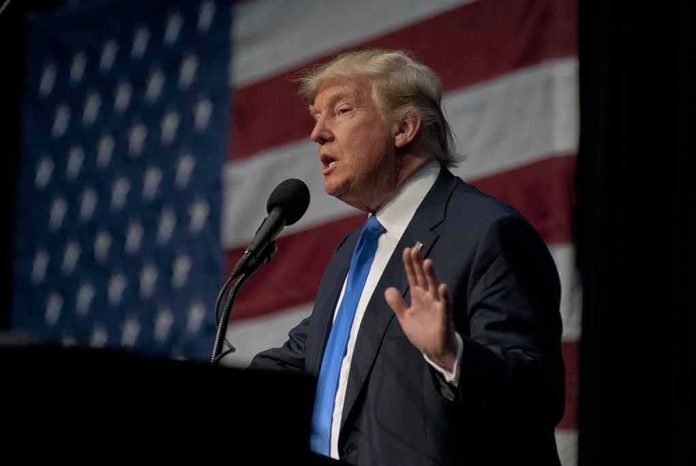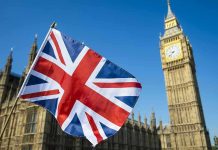
President Trump’s demand to jail Chicago’s mayor and Illinois governor represents an unprecedented escalation in federal-state tensions that could fundamentally reshape the balance of power between Washington and local governments.
Story Snapshot
- Trump calls for arrest of Chicago Mayor Brandon Johnson and Illinois Governor JB Pritzker
- Conflict centers on National Guard deployment to Chicago against local officials’ wishes
- Legal battle underway as Illinois challenges federal troop deployment authority
- Trump threatens to invoke Insurrection Act if courts block military action
Federal Authority Meets Local Resistance
The confrontation began October 4th when the White House directed National Guard troops to deploy in Chicago, setting off a constitutional clash that has dominated headlines. Mayor Johnson and Governor Pritzker immediately challenged the order in court, arguing the deployment violates state rights and represents dangerous federal overreach. Their legal strategy questions whether Trump can unilaterally deploy military forces in cities without local consent or clear justification under existing law.
Trump’s response came swift and severe. On October 8th, he publicly declared both officials should face arrest for allegedly failing to support ICE agents. The president’s comments mark a dramatic escalation, moving beyond typical political rhetoric to direct threats against elected officials who oppose his policies. This represents uncharted territory in modern American politics, where disagreement over federal policy rarely triggers calls for imprisonment.
The Immigration Enforcement Battleground
The root of this conflict lies in Chicago’s sanctuary city policies and Trump’s aggressive immigration enforcement agenda. The president has repeatedly criticized Chicago as a “killing field,” using crime statistics to justify federal intervention. ICE operations have faced resistance in sanctuary jurisdictions, creating friction between federal agents and local law enforcement who prioritize community policing over immigration enforcement.
Texas National Guard troops now sit positioned near Chicago, awaiting further orders while legal proceedings unfold. This military presence creates an ominous backdrop to the political theater, demonstrating Trump’s willingness to back his words with action. The deployment follows similar controversial moves in Portland, where Trump faced sustained legal challenges that ultimately limited federal authority.
Trump says Illinois governor and Chicago mayor should be jailed as they oppose Guard deployment | Click on the image to read the full story https://t.co/GP17s0weqs
— WGAL (@WGAL) October 8, 2025
Constitutional Crisis in the Making
Legal experts warn this confrontation could establish dangerous precedents for executive power. Trump’s threat to invoke the Insurrection Act if courts rule against him suggests he’s prepared to escalate further, potentially deploying troops despite judicial opposition. Constitutional scholars note the Insurrection Act requires specific conditions that may not exist in Chicago, making Trump’s threats legally questionable.
The implications extend far beyond Chicago. If Trump succeeds in deploying troops over local objections, it could embolden similar actions against other Democratic-led cities. This represents a fundamental shift toward federal control over local law enforcement, undermining principles of federalism that have governed American politics since the founding. Conservative principles traditionally emphasize limited federal government and local control, making Trump’s approach controversial even among his supporters.
Political Calculations and Broader Strategy
Trump’s aggressive stance appears calculated to energize his base while positioning himself as tough on crime and immigration. The timing, coming during heightened political season, suggests electoral motivations alongside policy goals. By targeting prominent Democratic officials in a major city, Trump creates a high-profile confrontation that dominates news cycles and reinforces his law-and-order messaging.
However, the strategy carries significant risks. Overreaching federal authority could backfire, generating sympathy for targeted officials while raising concerns about authoritarian tendencies. Public polling suggests Americans remain divided on federal versus local authority, making this a potentially volatile political gamble. The outcome of pending legal challenges will determine whether Trump’s threats have real consequences or remain empty political posturing.
Sources:
AZ Central – Trump Chicago National Guard ICE JB Pritzker
LA Times – Trump Chicago Mayor Illinois Governor National Guard Troops
WVXU – Illinois Governor Weighs In on Efforts to Deploy the National Guard in Chicago






